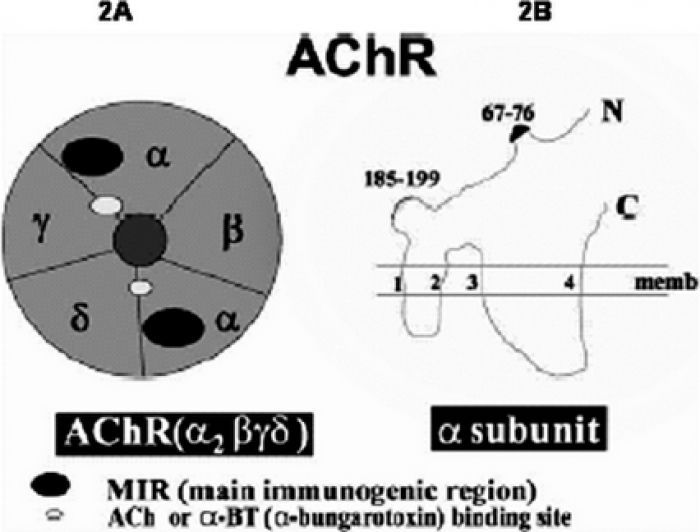Medically reviewed and approved by a board-certified member
Immunology
Acetylcholine Receptor (AChR) Antibody
By ManagerTwitter Profile | Published: Saturday, 23 April 2016

An acetylcholine receptor (AChR) antibody test is used to help diagnose myasthenia gravis (MG) and to distinguish it from other conditions that may cause similar symptoms, such as chronic muscle fatigue and weakness.
AchR antibodies hinder the action of acetylcholine, a chemical (neurotransmitter) that transmits messages between nerve cells. The antibodies do this in three major ways:
- "Binding" antibodies attach to the acetylcholine receptors on nerve cells and may initiate an inflammatory reaction that destroys them.
- "Blocking" antibodies may sit on the receptors, preventing acetylcholine from binding.
- "Modulating" antibodies may cross-link the receptors, causing them to be taken up into the muscle cell and removed from the neuromuscular junction.
Three different types of tests are available to determine which of these may be the problem in a particular individual. However, the test that measures "binding" antibodies is most commonly used because it is generally rare for the other two tests to be positive without the "binding" test being positive as well. These other tests may be used when a doctor strongly suspects myasthenia gravis and the "binding" test is negative.
One or more of the AChR antibody tests may be ordered as part of a panel of tests that may also include a striated muscle antibody test to help establish a diagnosis. Depending upon results, an anti-MuSK (muscle-specific kinase) antibody test may also be ordered. The AChR antibody test may be ordered initially as a baseline test and then as indicated to evaluate MG disease activity and/or response to therapy.
People with MG often have an enlarged thymus gland and may have thymomas (typically benign tumors of the thymus). Located under the breastbone, the thymus is an active part of the immune system during childhood but normally becomes less active after puberty. If a thymoma is detected, such as during a chest computed tomography (CT) scan done for a different reason, then an AChR antibody test may sometimes be used to determine whether the person has developed these antibodies.
When is it ordered?
The AChR antibody test may be ordered when a person has symptoms that suggest MG, such as:
- Drooping eyelid
- Double vision
- Decreased eye movement control
- Difficulty swallowing, chewing, with choking, drooling and gagging
- Slurred speech
- Weak neck muscles
- Trouble holding up head
- Difficulty breathing
- Difficulty walking and an altered gait
- Specific muscle weakness but normal feelings/sensations
- Muscle weakness that worsens with sustained effort and improves with rest
When a person has been diagnosed with MG, an AChR antibody test may be ordered occasionally to evaluate MG disease activity and/or response to therapy.
An AChR antibody test may sometimes be ordered when a thymoma is detected.
What does the test result mean?
AChR antibodies are not normally present in the blood. They are autoantibodies and their presence indicates an autoimmune response.
If a person has AChR antibodies and symptoms of MG, then it is likely that the person has this condition.
AChR antibodies may be seen with some thymomas, in people who are being treated with drugs such as penicillamine, with some small cell lung cancers, with autoimmune liver disease, and with Lambert-Eaton myasthenic syndrome (a condition associated with interference with the release of acetylcholine from the nerve ending).
A negative test result does not rule out MG. Up to 50% of those with ocular MG (affecting only eye-related muscles) and about 10-15% of those with generalized MG will be negative for AChR antibodies.
In general, the greater the quantity of AChR antibody, the more likely a person is to have significant symptoms, but the test results cannot be used to evaluate the severity of symptoms in a specific person.
- Read Comments
- Posted by Manager
Tags:
End of the article